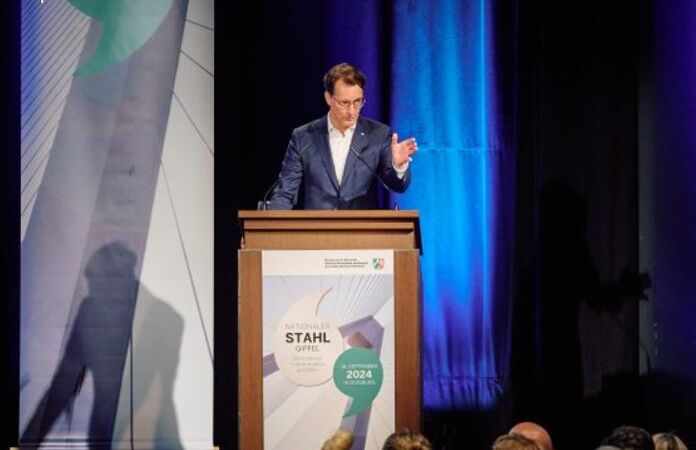Germany: Steel-producing states present National Steel Action Plan
by David Fleschen

On September 16, 2024, the National Steel Summit took place in Duisburg, where the steel-producing states of Germany, together with IG Metall trade union and the German Steel Federation, presented the National Steel Action Plan to the federal government. The plan aims to support the German steel industry on its path to climate neutrality while safeguarding jobs and maintaining competitiveness.
North Rhine-Westphalia’s Minister-President Hendrik Wüst emphasized the importance of the steel industry for both the state and the German economy: "The steel industry is part of our state's DNA. It is crucial for many value chains and the future prospects of thousands of workers." In the face of global challenges like rising energy prices and overcapacity, Wüst called for adjustments to regulatory conditions.
Economy and Climate Protection Minister Mona Neubaur highlighted the strong message the National Steel Summit sent about the future of the steel industry. The goal is to create a climate-neutral, economically strong steel production. The National Steel Action Plan provides clear guidance to achieve this.
Federal Minister for Economic Affairs Dr. Robert Habeck underscored Germany's role as a global leader in decarbonizing the steel industry. By 2030, one-third of Germany's crude steel production capacity will transition to climate-neutral production, leading to significant CO2 reductions.
The National Steel Action Plan, developed by the steel-producing states, the German Steel Federation, and IG Metall, outlines key measures such as competitive energy prices, the expansion of renewable energy, and the development of a hydrogen economy. The plan also calls for an immediate federal program to implement these goals.
Source and Photo: State Government of North Rhine-Westphalia

